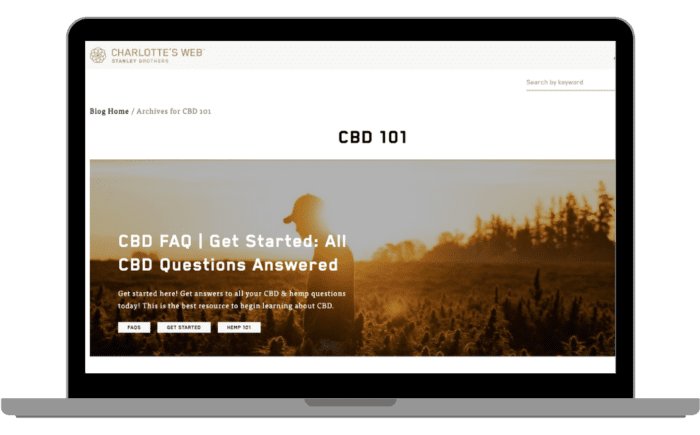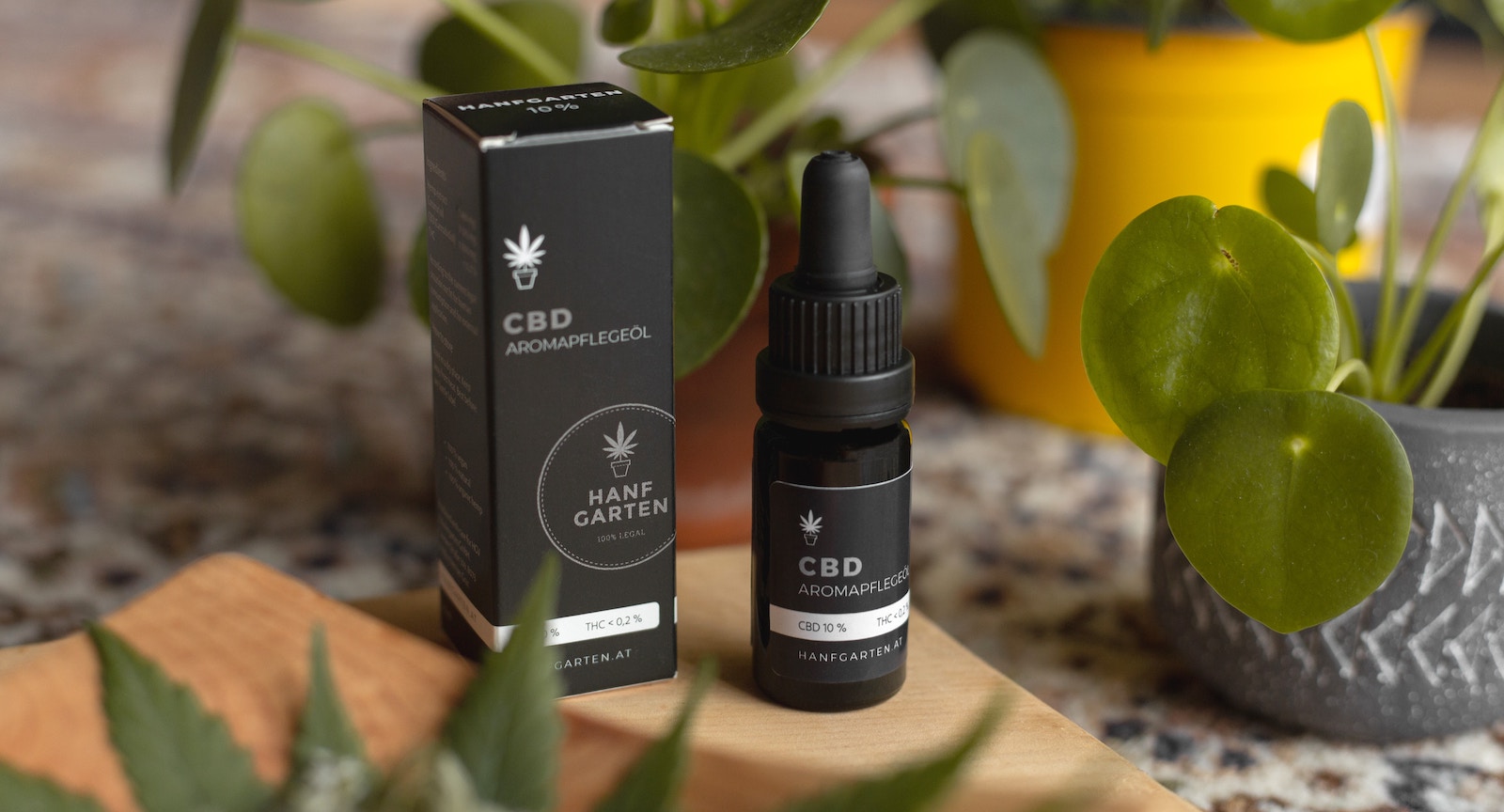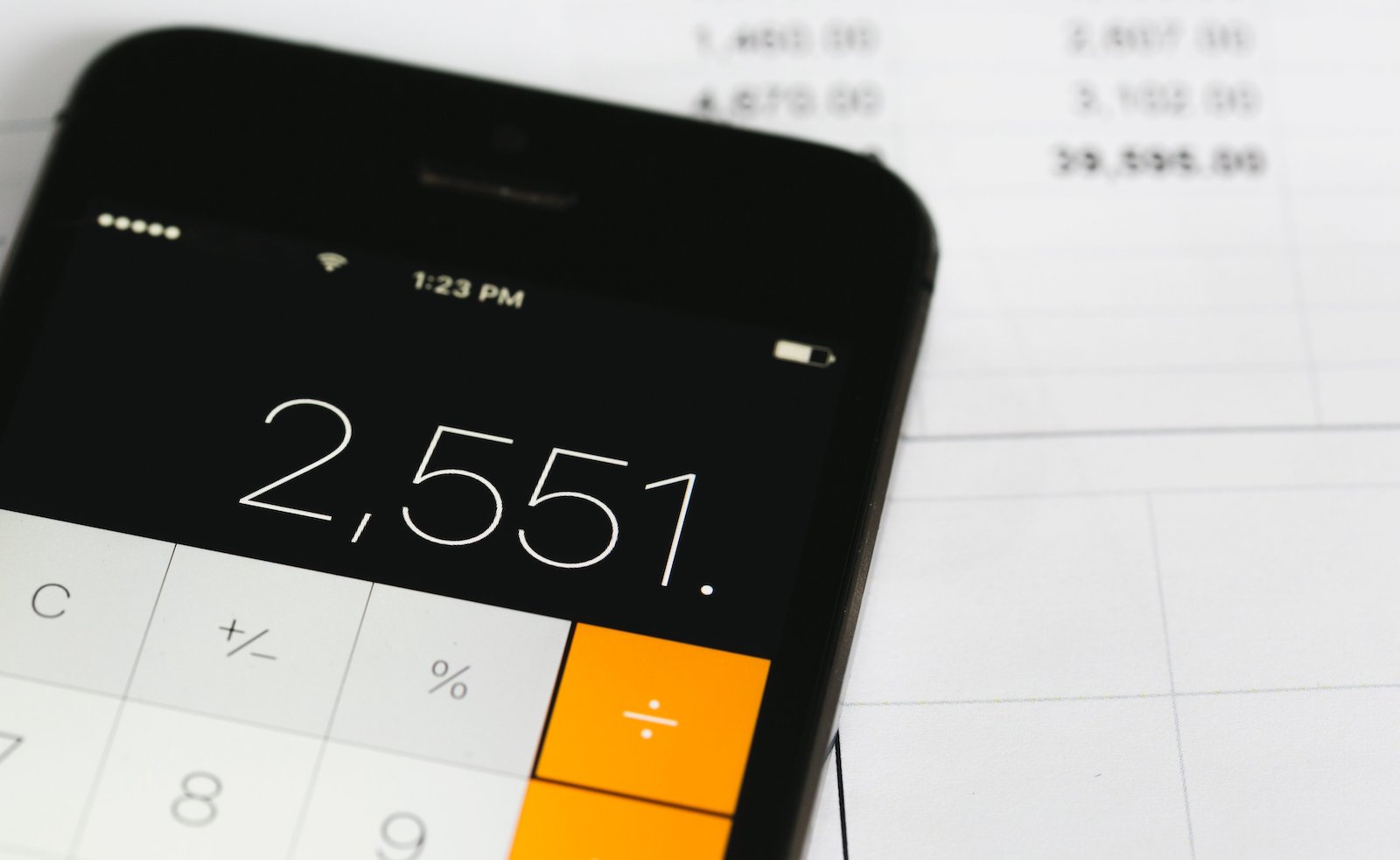Table of Contents
** Minutes
The CBD market is booming in 2023
First things first: the legality of selling CBD online
How to start selling CBD oil online
Challenges of selling CBD online
Fulfilment options for selling CBD online
The Cannabidiol (otherwise known as CBD) industry has been rapidly growing and evolving in recent years.
CBD products come in many forms, such as supplements, beverages, skincare, pet care, and more, so it has also become a popular product among ecommerce sellers.
Despite its prevalence, if you choose to sell CBD products online you’ll face a complicated industry with complex legal and marketing challenges.
Before you start selling CBD products online, you should know exactly what to expect and how to prepare. Read on to get the full rundown on how to navigate building a CBD income stream in today’s climate.
Note: This article is solely for informational purposes and does not constitute legal advice. ShipBob can only fulfil orders for CBD products from our US fulfilment centres that meet the following criteria:
- Products are manufactured by a US-based company.
- Products exclude vapes.
- Products contain <0.3% THC.
ShipBob cannot fulfil any CBD products from our fulfilment centres outside of the US. The rest of this article provides general information on shipping CBD products.
What is CBD?
CBD, or Cannabidiol, is an active component of cannabis which is derived from the hemp plant. Cannabis is made up of different cannabinoids and cannabidiol is one of them. CBD is known to help with a variety of health concerns, including anxiety, insomnia, and chronic pain.
CBD doesn’t contain THC (tetrahydrocannabinol) which is the ingredient in cannabis that causes psychological effects like euphoria, short-term memory loss, increase in appetite, and paranoia. THC is the ingredient that many governments around the world have fought to keep illegal.
Because of this, CBD is more widely accepted and legalized in most cases.
Types of CBD
CBD is available in various forms.
- Full-spectrum CBD retains all components of the cannabis plant, including traces of THC. This form of CBD has less than 0.3% THC and is legal in the United States.* This type of CBD is more potent and best suited for people who want to experience the full benefits of CBD. Full-spectrum CBD can help relieve inflammation, pain, and anxiety.
- Broad-spectrum CBD is a form of CBD that includes all components of the cannabis plant. This form of CBD may contain traces of THC. This form of CBD contains additional compounds that are not found in CBD isolate, so broad-spectrum CBD can help relieve pain, improve skin health, reduce anxiety, and increase sleep quality.
- CBD isolate is CBD in its purest form. This form of CBD doesn’t include any other compounds from the cannabis plant. This form of CBD might be best suited for people who are using CBD for the first time or would like to try CBD without ingesting THC.
*Full-spectrum CBD may not be legal in all markets.
There are various types of CBD products, including edible products like gummies or chocolates, creams and lotions, sprays, supplements for humans and pets, and more.
The CBD market is booming in 2023
There’s no doubt about it, consumers are getting on the CBD train. Over 60% of U.S. adults have either used or tried a CBD product.
You might look at the explosive evolution that the CBD industry has undergone in the past couple of years and find yourself intimidated by market saturation and competition. But don’t worry, it’s still a viable market for new brands to join the industry.
Just how big is the opportunity, exactly?
The CBD market is worth billions
CBD sales reached $1.9 billion USD in 2022. CBD has established itself as a household item, even being a necessity for some customers.
It’s important for brands that offer high-demand products, like CBD, to ensure a smooth customer shopping and delivery experience. That’s where a reliable fulfilment partner comes into play. CBD brands need to leverage a fulfilment provider that can seamlessly fulfil orders, manage high order volumes, and has quick throughput.
Since the market is rapidly growing, competition is fierce. As a result, it’s important to create a positive customer experience so buyers will come back to your brand again and again.
New legal terms for CBD oil
CBD has definitely undergone its share of legalization battles and still has some opposition, but there has been major progress along the way. The 2018 Farm Bill legalized hemp production across the US, which is great for sellers because CBD is produced from industrial hemp.
The bill essentially states that as long as your CBD product has less than 0.3% THC in it, you’re free to sell it as long as you comply with regulations.
First things first: the legality of selling CBD online
For obvious reasons, the legalization of CBD has been widely disputed.
As long as it remains a controversial topic, you’ll want to set up alerts for updates to CBD laws. With that being said, a plethora of laws have been put in place that you need to be aware of, both federally and at the state level.
Federal CBD laws
There are no federal laws in the United States that prohibit the sale of CBD (as long as you make sure your products contain less than 0.3% THC). Due to the aforementioned 2018 Farm Bill, CBD is legal in the U.S. However, it is recommended that you stay aware of the state of legalization as laws can always be altered or overturned.
It’s worth noting that the FDA has stepped in on occasion to call out unapproved products that market false health claims.
In addition to the United States, many other countries have legalized the use of CBD. However, regulations for selling CBD online differ from country to country. For example, Canadian CBD sellers must abide by the country’s Cannabis Act and its regulations.
CBD laws by state
CBD laws vary by state in the United States. Some states allow marijuana-produced CBD, while others only allow industrial hemp-produced CBD.
California, Florida, and New York are leaders in the CBD market within the United States. While popular, there are still many state laws and regulations for CBD sellers in these states. California, for example, requires businesses to comply with Assembly Bill No. 45, which regulates CBD and hemp within the state. As a part of the bill, CBD sellers must register with the California Department of Public Health (CDPH) to comply with ingredient, quality, and testing requirements.
However, in Florida, hemp-derived CBD products are legal while cannabis-derived CBD is only legal medicinally. This is an important distinction to be aware of if you’re selling CBD in the state. Learn more about how the state determines differences between the two here.
No matter where you want to sell CBD within the United States, you’ll want to research local CBD ordinances and regulations in order to get your business off the ground. You can also get in touch with local representatives or research laws in your state to see what you’re allowed to sell.
From that information, build a list of products that you know are legal for you to sell and stick with your regular inventory to avoid any legal mishaps. Your best bet is to simply sell the industrial hemp-sourced CBD, as it won’t have high THC levels and is accepted across the nation.
How to start selling CBD oil online
Once you’ve dialed in your legal allowances, you’re ready to set up your online store. There are several steps you need to take to start selling CBD online. From there, you can start refining your product, marketing, and ecommerce fulfilment strategies to grow your business.
1. Obtain licenses
In order to sell CBD, you’ll need to get a couple of licenses. One is a business license. Usually, small businesses go for an LLC. Research your preference at your local government website. Registration usually costs about $100 in most cases.
You’ll also want to get a resale license if you plan to purchase your CBD product from wholesalers. Much like business licenses, resale licenses and permits are handled at the state-level, which can be handled differently from state to state. Discover what your state requirements are to determine if you need a resale license and how to acquire one.
2. Find a certified supplier
Because CBD isn’t regulated by the FDA, not all CBD products are high-quality. You’ll want to find a reputable CBD supplier that will sell you high-quality products (such as tinctures, oils, hemp products, and more) and is also certified to sell by the state or federally.
To ensure quality, you’ll want to ensure the supplier has had their products tested by a third-party labouratory. Verifying the product’s Certificate of Analysis is important so you can pass along the best and safest product to your customer.
3. Build your website
Now that you have the paperwork and selection process out of the way, it’s time to build your website. As a new business, you need a domain name (or a “www.yoursitename.com” web address) that reflects the name of your brand.
One of the most popular platforms to buy domains from is GoDaddy.com. But you can just as easily get your domain name from most web-building platforms like BigCommerce, Square, and WooCommerce. There’s no shortage of platforms out there that make it incredibly easy for you to build and maintain an ecommerce store.
For example, BigCommerce offers full-featured solutions for merchants of all sizes, with no additional fees for selecting your own payment gateway.
Be careful to cover the terms of service and community policy to make sure you’re advertising and selling your products within the boundaries set by the platform.
You’ll need to find reliable credit card payment processing, which can be tricky for CBD products as the payment gateway landscape has been changing a lot in this industry.
CBD payment might be tricky to navigate since it is not currently approved by all payment processors (e.g., PayPal), so you’ll need to make sure you’re working with a company that can do this.
Note: Credit card fees with CBD gateways may vary by merchant based on a risk assessment done by the processor.
4. Market your CBD products
Now that your website is live, it’s time to bring in the buyers. Building a marketing strategy to attract new customers is a crucial step of launching an online CBD business.
After setting up your website, the first thing you’ll want to focus on is Search Engine Optimiation (or SEO). This is the art and science of getting Google to rank your site above others in search results to show potential buyers your website first.
In order to succeed with SEO, you’ll want to get an SEO professional to audit your site. They can make sure that Google views things like your site speed, meta data, image optimisation, site functionality, and other components favourably. These things help Google trust that your website is worthy to show visitors.


You’ll also want to look into content marketing. To do this you’ll need to start a blog (similar to Charlotte’s Web, a CBD brand), master the skill of keyword research, and put out fresh content that captures the intent of what people are searching for. Make sure you’re targeting terms that bring in potential buyers and not just visitors looking for information on the topic.
Once you start getting organic website visitors through your SEO efforts, you’ll want to begin email marketing. You can start an email list and use your website to grow it. In exchange for an email address, you can offer discounts or even free informational PDFs and trainings on CBD.
When visitors provide their email address for your freebies, they’re giving you permission to nurture the relationship and inform them of more promotions moving forward (e.g., having a sitewide sale for 4/20 or a Black Friday/Cyber Monday deal).
You can also look elsewhere and try partnering with marketplaces like CBD Oils, Ganjapreneur, and Pot.com, or CBD-specific ad platforms like Traffic Roots.


After you’ve successfully set up the parts of your website that help your business rank on the search engine results page, you’ll want to focus your efforts on creating a social media presence. Facebook, Instagram, TikTok, YouTube, and Pinterest are some of the most common social media channels for DTC brands.
Each social media platform allows you to showcase your brand in different ways. For example, you can highlight quick how-to videos on TikTok, aesthetic product images on Instagram, in-depth product information on YouTube, and connect with customers on Facebook.
However, since the product is highly regulated, marketing can be challenging. Some of today’s popular ecommerce advertising methods have limitations on CBD products. For example, social media platform Meta (parent to Facebook, Instagram, and more) has a strict policy on what they will allow. Businesses wanting to advertise their CBD products on Meta must comply with all local laws and regulations, cannot make medical claims to treat, cure, prevent, or diagnose diseases, in addition to complying with Meta’s advertising standards.
However, in recent years, some platforms have relaxed their protocols for advertising CBD products. In 2023, Google (which includes YouTube) announced they will allow the promotion of certain CBD products.
5. Fulfil and ship customer orders
You’ll need a system for warehousing your CBD products and managing inventory over time. When you’re first getting started, this may be done in your home. After experiencing growth, you’ll want to expand into a fulfilment centre by either signing a warehouse lease or outsourcing fulfilment.
Just make sure your fulfilment technology syncs up well with your ecommerce platform, payment processor, and other software. For example, ShipBob is tech-enabled fulfilment company with warehouses across the US to help you spend less time worrying about packing and shipping orders and more time on growing your brand.
“Our fulfilment is on autopilot. ShipBob saves us so much effort, and the opportunity cost savings has been substantial. ShipBob’s platform is easy to use and navigate, the interface is intuitive, and the analytics are very clearly laid out. Today, our health and wellness brand sells three CBD products in the United States.”
Yannick Crespo, Co-Founder & President of Pot d’Huile
Take CBD company Nature’s Ultra. Last year, they started to experience a surge in orders. They were managing CBD shipping and logistics themselves but didn’t understand just how massive and difficult retail fulfilment was. They were getting so deep into the logistics and supply chain side that they didn’t have time to focus on their core products.
They knew they’d be doubling and then quickly tripling their order volume, so they wanted to get help on the front-end to ensure a long-term relationship with a lot of room for scalability. They searched for companies that could give them something similar to Amazon’s delivery capabilities for their website orders, so they partnered with ShipBob.
“Now that we’re working with ShipBob, we can easily ship to all 50 US states with ease. We use ShipBob’s fulfilment centres in Dallas, Texas, Chicago, Illinois, and Bethlehem, Pennsylvania. They help us to maximise our shipping and ultimately our growth potential.”
Andrew Hardy, COO of Nature’s Ultra
Challenges of selling CBD online
Once you get your CBD store up and running, you will likely face a new set of challenges as you grow. Here are a few considerations to help you break through the crowded space and set your business up for success.
Standing out in the market
In a saturated market, you must consider your competitors. Think through the following:
- Which keywords are your competitors ranking for and how can you write better content to outrank them?
- What kinds of products are they providing and how can you stand apart?
- What can you do differently from your competition that your customers will love?
Think through the entire customer experience to uncover where you can differentiate, whether that’s selling unique products, providing custom packaging or a branded insert, or even offering free 2-day shipping.
[Read: How Nature’s Ultra CBD Customers Get 2-Day Shipping for 100% of Their Orders]
Managing regulations
As mentioned earlier, you’ll want to go through the proper state channels to figure out what your regulations are so you can abide by them. Your best bet is to take inventory of any regulations, rules, and restrictions, and create company policies around them to make sure you’re following them. With the industry continuing to evolve, be sure to stay updated on these regulations.
As selling CBD becomes more widely accepted, you may eventually be able to sell internationally, ship to other countries, and build out an international shipping strategy. In the mean time, don’t ship products to destinations where they’re not allowed.
Fulfiling orders
Without the proper support and systems in place it can become really difficult to fulfil your orders especially as demand picks up. When you can no longer go at it by yourself, you’ll need to find a solution that will ensure you’re able to deliver the products your customers buy in a timely fashion.
“We place considerable expectations and pressure on shipping so we can get close to what Amazon does. With ShipBob, 100% of our orders are going out via 2-day shipping. We see that people are far more likely to order and keep ordering from us when 2-Day Express Shipping Program is an option.”
Andrew Hardy, COO of Nature’s Ultra
Financing and lender hesitation
Due to the controversial nature of CBD, some financial institutions and lenders might be hesitant to work with brands selling CBD products. Although CBD is legal, some institutions may see it a marijuana-related business which could mean it’s considered high-risk.
Despite many banks being cautious about CBD businesses, Chase Bank and North Bay Credit Union are CBD-friendly.
Insurance options
As a high-risk business, you may face challenges when it comes to insuring your business. Regulatory hurdles, distribution issues (selling to customers in areas where certain CBD products are not allowed), and issues with online payments are common challenges CBD brands face when seeking insurance.
Payment infrastructure
As previously mentioned, some online payment methods may no be viable for CBD ecommerce brands. PayPal, Shopify Payments*, and Stripe do not allow merchants selling CBD to process payments. You’ll need to strategically vet your online store platform and payment processor when selling CBD products.
Square, Bankful, PayKings, and Easy Pay Direct are all CBD-friendly payment processors.
NOTE: You can sell CBD products on Shopify’s ecommerce platform, but cannot use Shopify Payments to process payment for CBD products.
Fulfilment options for selling CBD online
Ecommerce shipping can be very challenging and order fulfilment boils down to three common options. What works for one business may be cost-prohibitive or inefficient for another.
In-house fulfilment
There are plenty of CBD brands that fulfil orders by themselves. They keep inventory at home and run to the post office, or use local warehouse space to pack and ship each order by investing in the infrastructure and running operations. This option is often best when getting started or if order volume isn’t too much to handle.
As your store grows, you need to scale seamlessly and find a more streamlined solution. This could be moving inventory to a fulfilment provider or moving into a warehouse and implementing a warehouse management software (WMS).
Dropshipping
Dropshipping is when a manufacturer handles both product procurement and shipping orders. All you do is market the product without touching inventory. This can work well for some products, but is often difficult for CBD oil because you have less control over quality, product selection, and speed of shipment.
3PL (third-party logistics) solutions
3PLs are a happy medium as you don’t have to purchase land or hire a team to pack boxes, but you still have control over selecting a manufacturer. The 3PL is the middleman that stores your inventory close to your end consumers, while helping you quickly and seamlessly get the products shipped out.
“We were shipping a dozen orders per day, and now we ship hundreds per day. ShipBob has allowed us to scale up and become successful — we have gone from $70,000 in sales in 2018 to over $7 million in sales in 2019. When it comes to delivery, accuracy and timing are the most important to us, and ShipBob helps us execute on that.”
Andrew Hardy, COO of Nature’s Ultra
ShipBob takes the stress out of selling CBD online
Starting an online CBD business might have some legal and marketing challenges involved, but with the growth of the industry and continued legalization, now is the time to get in. Since it’s still a young industry, you can still get ahead of the curve.
Already running a CBD store or anticipating a huge launch? Get in touch to learn how ShipBob can handle your CBD fulfilment so you can focus on your brand — not packing boxes.
Scale alongside demand
As mentioned, CBD products are in high demand. So as your order volume grows, your fulfilment provider will need to scale alongside with you.
Outsourcing fulfilment to a reliable partner like ShipBob frees you from managing order fulfilment yourself, allowing you to focus on other aspects of your business.
Ship on time, and fast
To stand out against the competition and create an outstanding customer experience, you’ll want to make sure your fulfilment partner can quickly fulfil orders and efficiently ship them out so customers receive their orders on-time.
To ensure customers receive orders quickly, brands can utilise ShipBob’s fulfilment centres to distribute inventory through the network in order to reduce transit times (and reduce shipping costs). If you’re interested in offering your customers expedited shipping, you can leverage ShipBob’s 2-Day Express shipping option.
Outsource your warehouse management
Some fulfilment providers may have limitations on brands selling CBD, so fulfiling orders from your own warehouse might be a viable solution. In order to fulfil orders from your own facility, you’ll want to leverage a warehouse management software (WMS) to track inventory, orders, and facilitate a seamless fulfilment process.
Already running a CBD store or anticipating a huge launch? Get in touch to learn how ShipBob can handle your CBD fulfilment so you can focus on your brand — not packing boxes.
CBD Shipping FAQs
Here are some of the most frequently asked questions about selling CBD online.
Is selling CBD online profitable?
Yes! The CBD market is booming. CBD sales in the U.S. are expected to hit $23 billion in 2025. Considering the demand is so significant, brands can create a profitable business by selling CBD products. Common products include CBD edibles, oils, supplements, tinctures, skincare, pet care, and more.
Can you sell CBD on Amazon?
No. As of 2023, Amazon has prohibited the sale of CBD products on their platform, even when CBD is legal under state law.
Can you sell CBD on Facebook Marketplace?
According to Facebook, they “allow ads to promote or offer the sale” of legally permissible CBD products in the US. Non-ingestible products need LegitScript certification and written permission from Meta. Non-ingestible CBD and hemp can be promoted in the US, Canada, and Mexico.
Where is it legal to sell CBD in Europe?
European countries vary in their stance on CBD. The UK and EU allow the sale of CBD products as long as they contain less than the legal limit of THC. Countries like Germany and Italy have different rules than other European countries.



